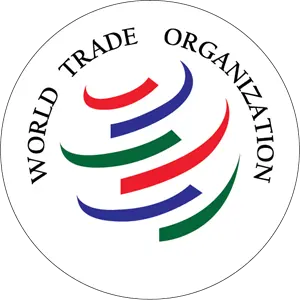As the US President Donald Trump shakes the foundations of global trade by slapping steep tariff on the goods from China,European Union, Canada and Mexico, the World Trade Organization (WTO), a body formed to deal with the trade disputes, has been sidelined.
China and other countries, which faced US tariff retaliated in a tit-for-tat move by slapping tariff on thousands of US goods. Despite having an option for the US to approach the WTO to settle its trade dispute with other nations, it chose to ignore the WTO mechanism thus fuelling the trade war.
This has raised a serious doubt about the WTO existence that the US had helped to establish in 1995 to ensure rule-based trading system. While Chinese President Xi Jinping has been defending free trade lambasting protectionism in different forums, the US President spoke in favor oftrade.
The US has also been blocking appointment or reappointment of Appellate Board (AB) members under the WTO's Dispute Settlement Mechanism since last one year.The US has expressed its objection to various procedures of AB practices. The US decision of not supporting the new appointment has created the risk that the AB -- a body of judges – would be frozen. Failing to make a new appointment will see only a three-member AB team, making it increasingly difficult to settle timely disputes.
With the US not submitting any proposal to reform the AB procedure, questions have been raised about its intent behind blocking of appointment process.
Nepali experts say that WTO losing its significance could have negative repercussion in regional and bilateral trade arrangements. "Many regional and bilateral trading arrangements have been prepared based in line with the WTO system," said Purusottam Ojha, former commerce secretary. For example, there is South Asia Free Trade Area (SAFTA) agreement in South Asia.
The multilateralism has ensured predictability in global trade contributing to global economic growth. But, when it fails, the countries will move towards bilateralism where 'give and take' will take prominence between the two trading nations. This may be disadvantageous for a country like Nepal having a little international clout, according to experts.
For example, Hong Kong Ministerial Conference of WTO in 2005 allowed the LDCs to get 'Duty Free, Quota Free (DFQF) market access to the developing and developed countries on 97 percent of goods.
According to Nepali experts, the concessions given to the LDCs would be at risk as the WTO faces existential threats from the major economies, particularly the US. These facilities are available to all the LDCs irrespective of their influence in the international arena. "When multilateral rule on granting DFQT to the LDCs fails, they have to go for bilateral arrangement where under-developed and developed countries may not be ready to extend such facility," said Jib Raj Koirala, a trade expert.
Countries like Nepal may have to compromise on several issues to gain market access. Experts opine that when countries move towards bilateralism, it narrows down scope of market access. Nepal had become the WTO member on April 23, 2004.
 简体中文
简体中文

